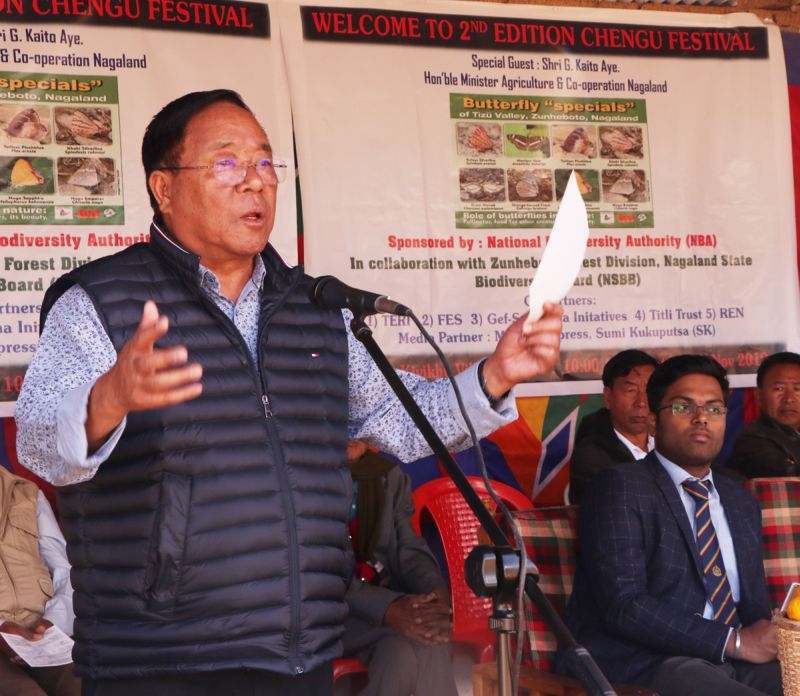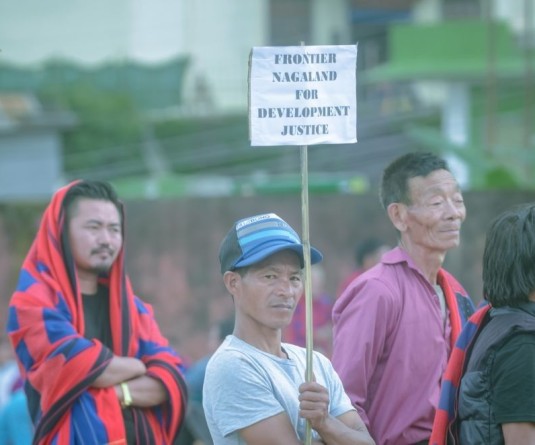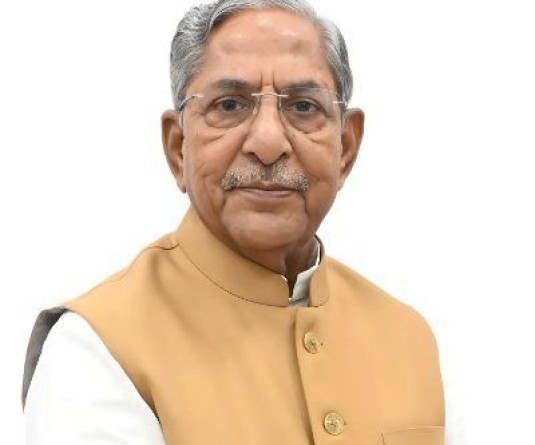Second Chengu Festival held in Kivikhu village

G Kaito Aye, Minister, Agriculture and Co-operation addressing the second Chengu Festival celebrated at Kivikhu village under Zunheboto District on November 22.
Promotes community participation towards biodiversity conservation
Zunheboto, November 22 (MExN): Organised by the Tizu Valley Biodiversity Conservation and Livelihood Network (TVBCLN), the second Chengu Festival was celebrated at Kivikhu village under Zunheboto District on November 22 with G Kaito Aye, Minister, Agriculture and Co-operation as the special guest.
A press release received here stated that while applauding the endeavour of the TVBCLN in conservation of the natural resources, Aye urged them to persevere in their effort as well as acquire more knowledge and continue to educate and encourage other neighbouring villages. Aye said that he will do what is required in his capacity to help in the initiative taken by the three villages and also said that he is looking forward to more success stories on biodiversity conservation in the future.
Later, Aye released two Chengu birds which were rescued by TVBCLN members from the hunters to mark the festival.
Supongnukshi Ao, IFS CCF and Member Secretary, NSBB gave a talk on ‘Sustainable use of biological resources’ while short speech was delivered by Raj Kumar M, IFS, DFO Zunheboto.
In the cultural session, several cultural items such as such as Ami Kukula, tug of war, war dance and spear kicking by the three villages of Kivikhu, Ghukhuyi and Sukhai was displayed. Free medical camp was also conducted by the Medical Department, Veterinary Department and ATMA during the festival. TVBCLN consists of three villages namely Sukhai, Ghukhuyi and Kivikhu.
About Chengu Festival
The name of the festival draws its significance from the fact that the “great barbet” has since time immemorial had strong cultural attachment to the community in the area.
The main concept of Chengu festival is to create mass awareness campaign on the importance of biodiversity and its conservation. Prior to the festival, many events and activities including small workshops, trainings, seminars and cultural exchange programs with other neighbouring villages have been conducted as a run up for the festival.
The cultural exchange has been strategically included to bring other neighbouring villages to participate in the programme while also spreading awareness for community participation towards biodiversity conservation. For activities like conducting workshops, seminars and trainings, resource persons are brought from various NGOs, agencies and government officials from various departments. The participants are divided as per the target group ranging from school children to elderly group and or women folk and youths.
The topics for such activities includes training to BMCs and their roles, workshops to youths and students on their roles in contributing towards conservation and sustainability of bio resources, workshops to women folks on forming SHGs and initiating homestay and hospitality, nature walks and bird watching along the forest tracks with the children, promotion of ecotourism, sericulture, integrated farming, wildlife management, etc.
It also includes free medical camps for the local people as well as their farm or domesticated animals. Thus, all sections of the community are being involved for successful achievement of the objectives of the festival.





